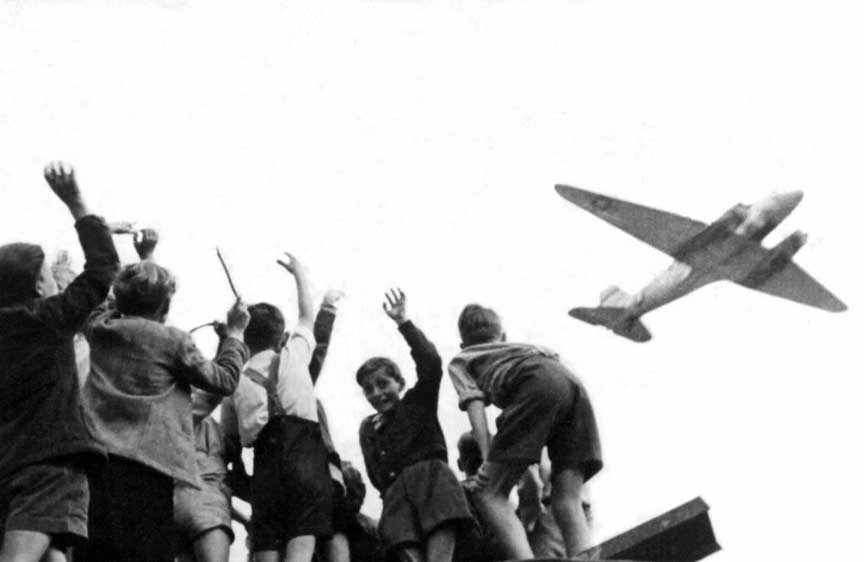1948 Berlin Airlift

German Children Wave at Plane Landing in Berlin
The Soviets began a blockade of West Berlin on June 26, 1948. The US and the Allies responded with an airlift that was able to carry all of the cities basic needs. The Soviets gave up and lifted the blockade on May 12, 1949.
No agreement could be reached with the Soviets on the continued control of Germany. When the Allies decided to introduce a new currency in West Germany to counter inflation, the Soviets opposed the move. In response, and as a means of stopping the reunification of Western Germany, the Soviets imposed a blockade on Berlin, which had been and remained under four-power control.
The American Commander in Germany, General Clay, stated that if the Soviets managed to push the US out of Berlin, the next step could be the expulsion of the US from Germany and then from Europe altogether. He suggested that the US break the blockade by force. President Truman decided, instead, on an airlift.
The airlift was a massive undertaking, transporting all of the food and fuel that had come to Berlin by rail and truck by air. The United States together with Royal Airforce,the French Air Force and even the airfares of Canada, Australia and New Zealand flew over 200,000 flights carry an average of 8,889 tons of food into Berlin every day. The Soviets who did not interfere with the flights realized that they could not force concessions out of the Allies and ended the blockade on May 12, 1949.
 >
>